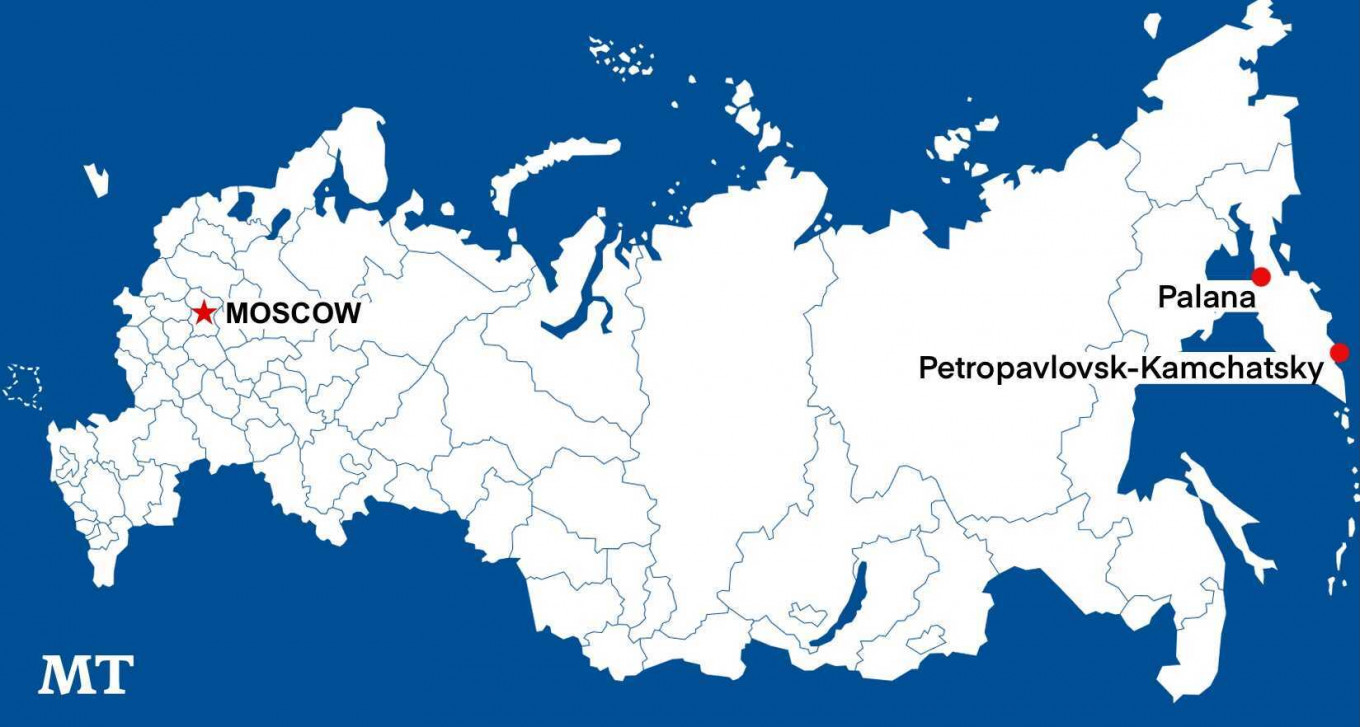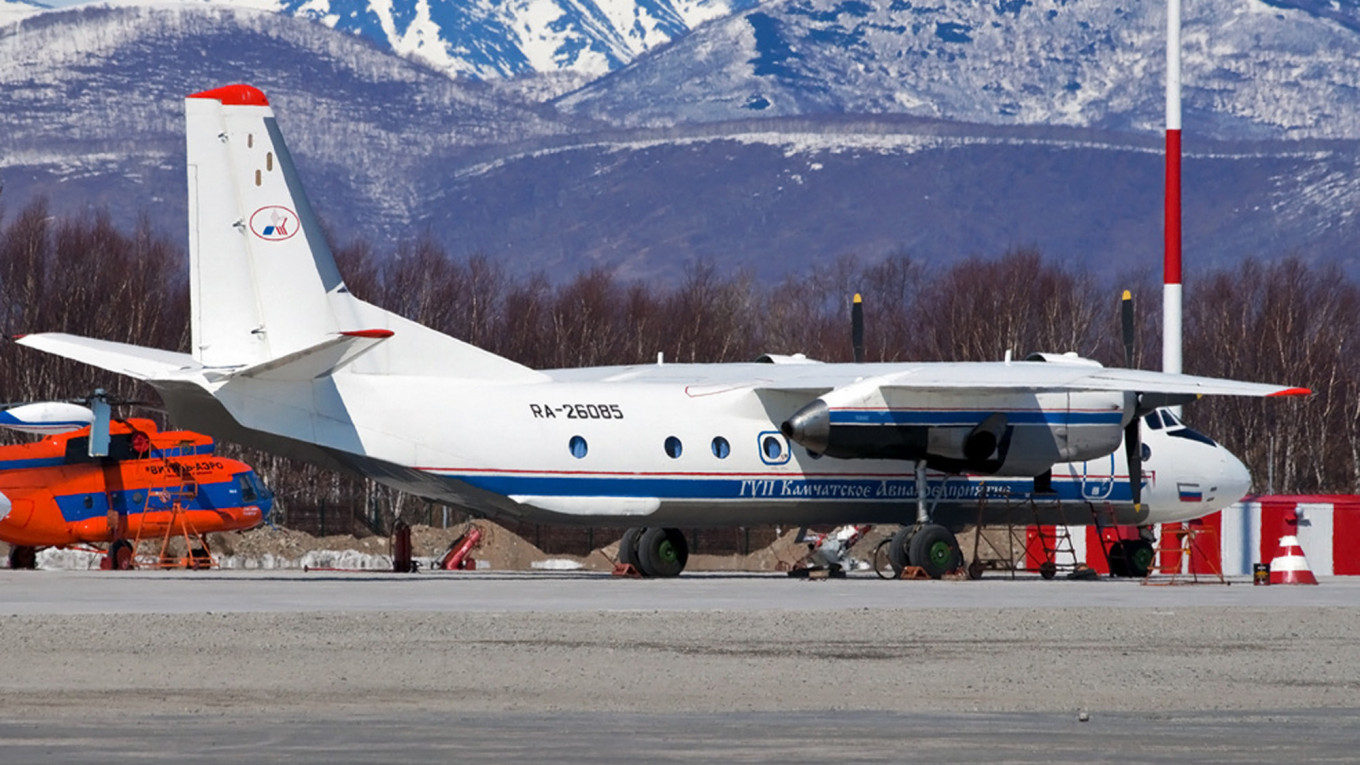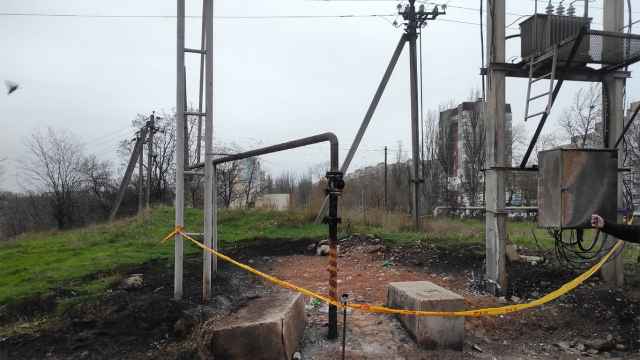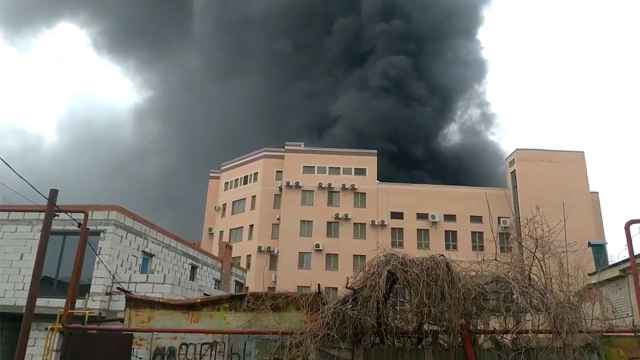Search teams on Tuesday found wreckage of a passenger plane carrying 28 people that had disappeared in Russia's remote far eastern Kamchatka peninsula, but there was little hope of survivors.
Search and rescue operations were suspended after night fell and Russian news agencies quoted local sources as saying it appeared that all the passengers and crew had died.
The An-26 plane was flying from Kamchatka's main city of Petropavlovsk-Kamchatsky to the coastal town of Palana when it disappeared at 2:40 p.m. (02:40 GMT).
The governor of Kamchatka, a vast peninsula popular with adventure tourists for its abundant wildlife and live volcanoes, said search teams had found parts of the fuselage along the coast and in the Okhotsk Sea.
"There was a catastrophe during the go-around approach for landing," Vladimir Solodov said in a video released on the government website.

Russia's aviation agency said in a statement that the plane's debris had been found at 9:06 p.m. local time (09:06 GMT).
Officials said that communication with the plane had been lost nine kilometers (5.5 miles) from Palana's airport and 10 minutes before its scheduled landing time.
Russian news agencies quoted local officials as saying most of the passengers were from Palana — which has a population of about 3,000 — including four local government officials and the town's head Olga Mokhiryova.
Investigation launched
Kamchatka's government published a list of 28 people who were on board, including Mokhiryova and one child born in 2014.
Interfax cited Russia's Pacific Fleet as saying that some of the wreckage was found on the slope of a hill and other parts in the sea four kilometers from the coast.
News agencies cited emergency ministry sources as saying that the plane had struck a cliff after twice trying to land amid poor visibility and a strong crosswind.
Interfax and TASS quoted local medical and emergency services sources as saying it appeared all those on board had died.
The Kamchatka government said the peninsula has five An-26 planes servicing remote areas.
The regional transport ministry and the local aviation company said the plane — built in 1982 — was in good condition and had passed safety checks.
Russia's Investigative Committee, which probes major crimes and incidents, said it had launched an investigation and that one of its teams had arrived at the site.
It said it was looking at three potential causes of the accident: "unfavorable weather conditions, technical malfunctions of the aircraft, or pilot error."
Soviet-era planes
An-26 planes, which were manufactured from 1969 until 1986 during the Soviet era and are still used throughout the former USSR for civilian and military transport, have been involved in a number of accidents in recent years.
Most recently four people died in March when an An-26 plane used by ex-Soviet Kazakhstan's military crashed while landing at an airport in the country's largest city of Almaty.
Two recent Russian military accidents have also involved An-26 aircraft, resulting in the deaths of 40 people.
While Russia has improved its air traffic safety record in recent years, poor aircraft maintenance and lax safety standards still persist.
Flying in Russia can also be dangerous in the vast country's isolated regions with difficult weather conditions such as the Arctic and the Far East.
Palana last saw an aircraft go down when an An-28 passenger plane struck trees during a premature descent in September 2012, killing 10 people.
The last major passenger plane accident in Russia took place in May 2019, when a Sukhoi Superjet belonging to the flag carrier airline Aeroflot crash-landed and caught fire on the runway of a Moscow airport, killing 41 people.
A Message from The Moscow Times:
Dear readers,
We are facing unprecedented challenges. Russia's Prosecutor General's Office has designated The Moscow Times as an "undesirable" organization, criminalizing our work and putting our staff at risk of prosecution. This follows our earlier unjust labeling as a "foreign agent."
These actions are direct attempts to silence independent journalism in Russia. The authorities claim our work "discredits the decisions of the Russian leadership." We see things differently: we strive to provide accurate, unbiased reporting on Russia.
We, the journalists of The Moscow Times, refuse to be silenced. But to continue our work, we need your help.
Your support, no matter how small, makes a world of difference. If you can, please support us monthly starting from just $2. It's quick to set up, and every contribution makes a significant impact.
By supporting The Moscow Times, you're defending open, independent journalism in the face of repression. Thank you for standing with us.
Remind me later.






